Almost every day, we hear about someone who has been injured or killed in a household accident. Many of these accidents could have been prevented if people had only known what to do. This is especially true for accidents involving electricity. In this blog post, we will discuss some tips on how to prevent electric shock in the kitchen. By following these simple guidelines, you can keep your family safe from harm!
Why Electrical Hazards Occur in Kitchen so Often
We spend every day in the kitchen. It is where we cook our meals, clean up after them, and often entertain guests. Because we are so comfortable there, it is easy to forget that the kitchen can be a dangerous place. There are many potential hazards that can cause serious injury or even death if we are not careful.
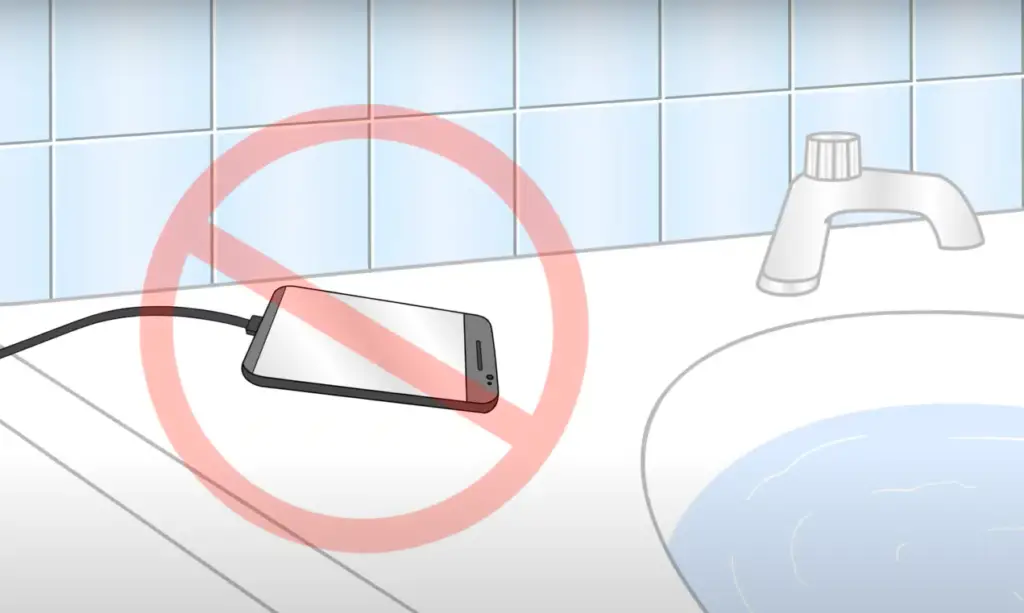
One of the most common dangers in the kitchen is electric shock. This can happen when we touch electrical appliances or wires that are not properly insulated. If the current is strong enough, it can cause our muscles to contract and stop working. We may also suffer burns or other injuries from the shock.
Electric hazards also lead to many fires in the kitchen each year. This can happen when electrical equipment is not properly maintained or if it is old and outdated.
In some cases, electric shock can be fatal, so it is important to take precautions to prevent this from happening in your home. But what factors influence the frequency of electric hazards in the kitchen? Well there are two reasons for this.
Kitchen is a wet environment
Water and electricity do not mix. If water or other liquids come into contact with electrical wires or appliances, it can create a dangerous situation. When water conducts electricity, it can cause an electric shock. This is why it is so important to keep your kitchen dry and free of spills.
Most of kitchen equipment is powered by electricity
It doesn’t help that nearly all of the equipment we use in the kitchen is powered by electricity. From can openers to blenders, almost everything we need to prepare a meal relies on electrical power. This means that there are a lot of potential sources of electric shock in the kitchen, especially if these appliances are not used properly. [1]
What Malfunctions Can Cause Electric Shock in the Kitchen?
Now that you are informed as to why electric hazards occur in the kitchen so often, it is time to take a look at some of the most common causes of electric shock.
Ungrounded plumbing
One of the most common causes of electric shock is ungrounded plumbing. If a loose electrical wire comes into contact with plumbing that is not properly grounded, it can create an electrical short and cause a shock. This is why it is so important to have your plumbing inspected regularly by a professional.
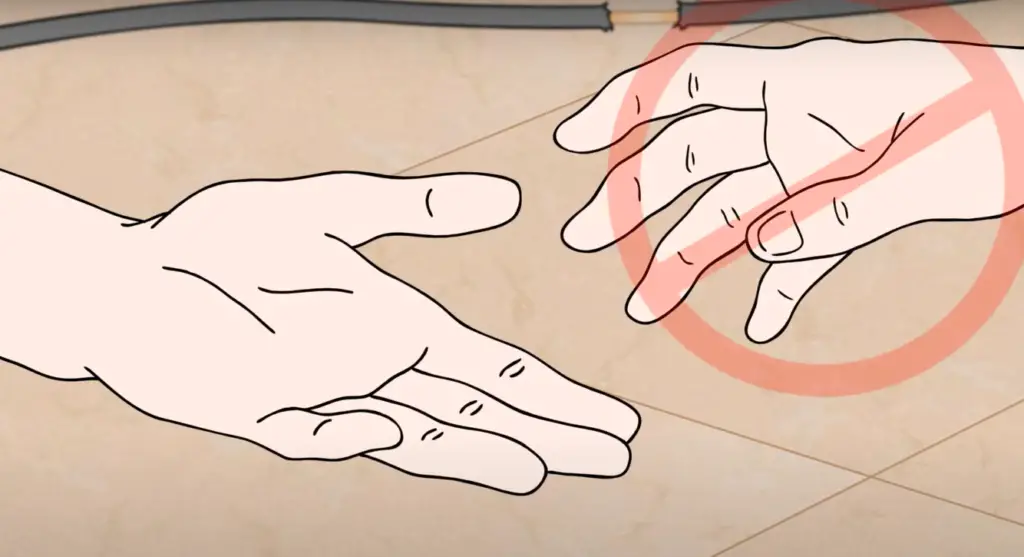
One way you can notice the problem lies within ungrounded plumbing is if you experience a tingling sensation when you touch certain objects in your kitchen, such as faucets.
Malfunctioning appliances
Another common cause of electric shock is malfunctioning appliances. If an appliance is not working properly, it can create a dangerous situation. This is why it is important to have your appliances serviced by a professional on a regular basis.
Look for appliances that have been certified by a reputable organization, such as Underwriters Laboratories (UL).Damaged electrical cords
Another common cause of electric shock is damaged electrical cords. If a cord is frayed or broken, it can create a gap in the insulation. This gap will allow electricity to flow through, and into your body if you touch it.
Damaged electrical cords are a fire hazard, and they should be repaired or replaced as soon as possible. If you have a damaged cord in your home, you should call an electrician to have it repaired.
Outdated wiring
Outdated wiring is another common cause of electric shock. If your home has old, outdated wiring, it may not be able to handle the current from your electrical appliances. This can cause the wires to overheat, and they may even catch fire.
If you have outdated wiring in your home, you should call an electrician to have it replaced. Keep in mind that updating your electrical system is not a do-it-yourself project. It should only be done by a qualified professional.
Faulty wiring
One of the most common causes of electric shock is faulty wiring. If the wires are not properly insulated, they can become exposed and pose a serious risk. Faulty wiring can cause an electrical current to leak, which can lead to an electric shock. Because of this, it is important to check your appliances and electrical outlets regularly to make sure that the wiring is in good condition.
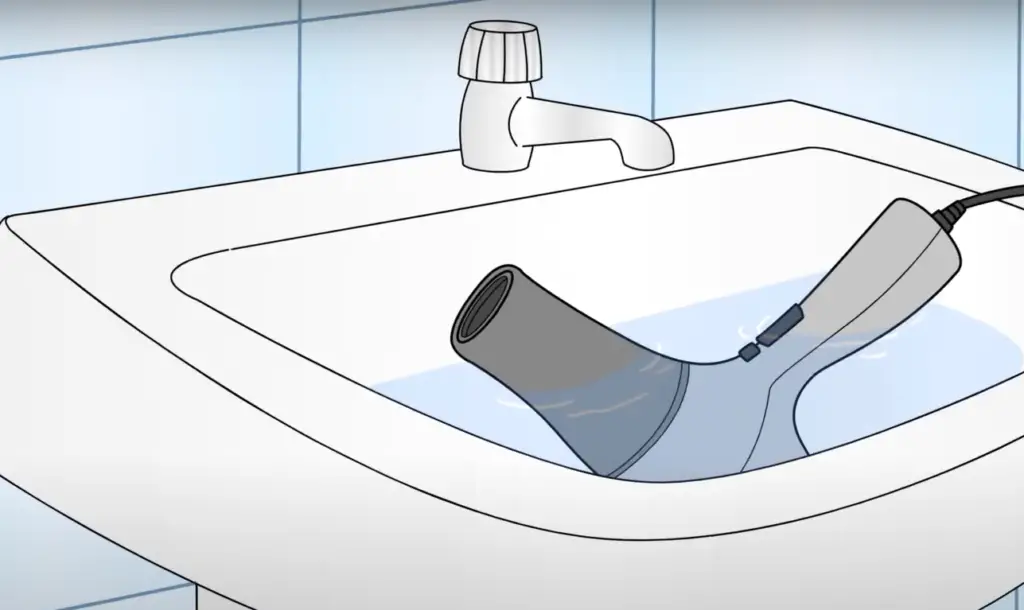
If you suspect that there is faulty wiring in your home, you should call an electrician to have it checked out.
These are just a few of the most common causes of electric shock in the kitchen. By taking precautions and being aware of these hazards, you can prevent them from happening in your home.[2]
How to Prevent Electric Shock in Your Kitchen
So now that you know some of the most common causes of electric shock, you may be wondering how you can prevent it from happening in your own kitchen. Next we will discuss some tips to help you stay safe.
Do not handle cords and plugs with wet hands
This may seem like an obvious tip, but it is one that is often overlooked. If you are handling cords or plugs with wet hands, you are at a higher risk of electric shock. This is because tap water conducts electricity, and if the current comes into contact with your body, it can cause an electric shock.
To prevent this from happening, always make sure your hands are dry before handling any cords or plugs. If you have to handle them with wet hands, use gloves or other protective gear to insulate your hands from the current. [1],[2]
Do not clear anything with a wet cloth near the sources of electricity
Another common mistake is clearing something with a wet cloth near the sources of electricity. This can happen when you are cleaning up spills, or when you are wiping down counters near electrical outlets. If the current from the outlet comes into contact with the water on the cloth, it can create a circuit. This circuit will then travel through the water, and into your body if you are touching it.
Always make sure that any surfaces near electrical outlets are dry before plugging in anything to prevent the hazard. If you have to use a wet cloth, be sure to keep it away from the outlet. [2]
Fix damaged cords immediately
If you have a cord that is frayed or damaged in any way, it needs to be fixed or replaced immediately.
In addition to damaged cords, any appliance that has been dropped or otherwise damaged should be inspected by a professional before being used again. Even if the damage does not seem severe, there could be internal issues that make the appliance unsafe.
Use extension cords carefully
Another common cause of electric shock is using extension cords improperly. Extension cords are not meant to be used as a permanent solution, but rather for temporary use only because they can easily become overloaded. If you must use one, make sure it’s rated for the wattage of the appliance you’re using it with.
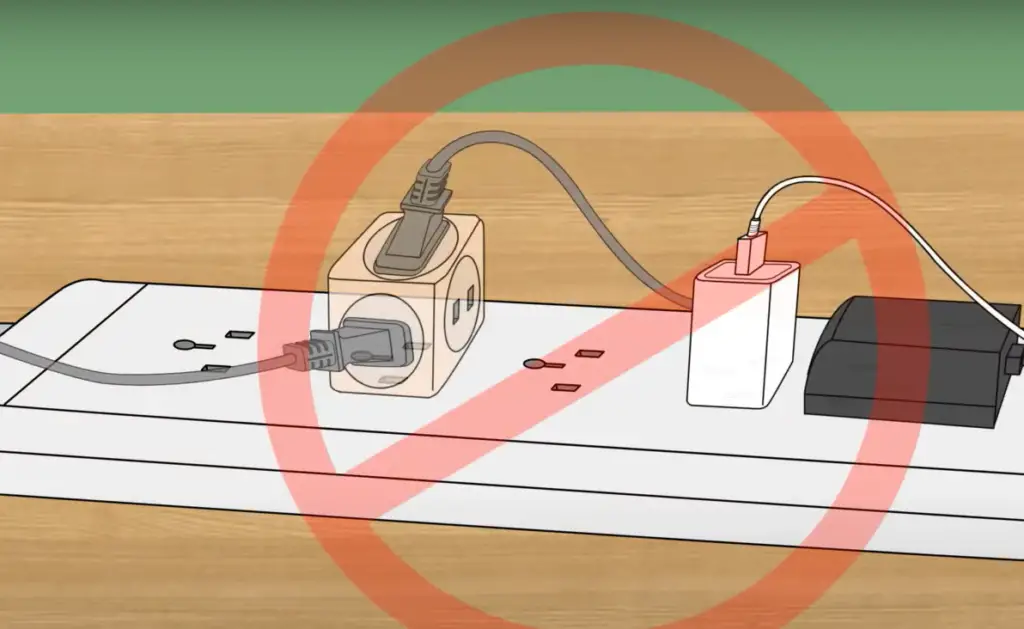
Improperly using extension cords can also lead to fires, so it is important to be aware of the proper way to use them. Extension cords should always be plugged into outlets that are not being used by other appliances. Never run extension cords between the doorways or under the carpets, as this can damage the cord. [1],[1],[1]
Keep electrical appliances away from water
This is another obvious tip, but it is one that is often overlooked. Electrical appliances should always be kept away from sources of water. This includes sinks, toilets, bathtubs, and showers. If an appliance falls into water, or a water splashes onto it, it can create a dangerous situation. If an appliance does come into contact with water, unplug it immediately. [2]
Disconnect appliances properly
When you are finished using an appliance, always make sure that it is disconnected properly. Never pull on the cord to disconnect it, as this can damage the cord or even worse, damage the wires inside, creating an electric hazard. Always grasp the plug and pull it out of the outlet.
Many people also don’t realize that before you disconnect a device, you should always turn it off first. If you disconnect a device while it is still turned on, it can cause a power surge. This power surge can damage the device and cause a serious incident.
To prevent this from happening, always make sure to turn off electronic devices before disconnecting them. Once they are turned off, you can safely unplug them without worry.
Once an appliance is disconnected, always make sure that it is stored away properly. Cords should be wrapped up and stored in a dry place and same goes for appliances.
Don’t place liquids on top of your microwave
This is a hazard that many people are not aware of. Placing liquids on top of your microwave can create a dangerous situation. If the liquid spills, it can come into contact with the electrical components of the microwave and cause a fire.
To avoid this, avoid placing anything on top of your microwave. Be it a liquid or not, it is always best to play it safe.[4]
Inspect your electrical system regularly
One of the best ways to prevent electric shock is to regularly inspect your home’s electrical system. This includes looking at all of the outlets, cords, and switches. If you see any signs of wear or damage, it’s important to have them repaired or replaced as soon as possible.
Another good idea is to have a qualified electrician come out and do an inspection every few years. They will be able to identify any potential problems that you may not be aware of.
If you live in an older home, it’s especially important to be diligent about this since the electrical system may not be up to today’s standards.
Avoid getting grease and water into outlets
This is another common mistake that can lead to electric shock. When you are cooking, it is easy to get grease and water on your hands. If you then touch an outlet, the current can travel through the water and into your body.
Same goes for spills. If you spill something on an outlet, it is important to clean it up immediately and dry the area off.
To prevent this from happening, always be careful when you are cooking. If you do get grease or water on your hands, make sure to wash them off before touching any outlets.[2]
Use GFCI in wet areas of your kitchen
GFCI stands for ground fault circuit interrupter. This is a device that is installed in areas of your home where there is a risk of electric shock.
This prevents the current from flowing into your body, and reduces the risk of electric shock.If you have any wet areas in your kitchen, such as near the sink or dishwasher, you should install a GFCI outlet. This will help to protect you from electric shock if there is ever a leak in the electrical current.
Installing a GFCI outlet is a simple job that most homeowners can do themselves. However, if you are not confident, you might want to seek help from a professional.
It’s important to test your GFCI outlets at least once a month to make sure they are working properly. You can do this by plugging a lamp into the outlet and then pressing the test button. The lamp should turn off when you press the button. If it doesn’t, then you know there is something wrong with the outlet and it needs to be repaired or replaced. [1],[2],[4]
Use a dedicated outlet for power demanding appliances
When using appliances that require a lot of power, such as fridges and dishwashers, it is best to plug them into a dedicated outlet. You should have a separate outlet for each of such appliances, and that you should not plug more than one appliance into each outlet.
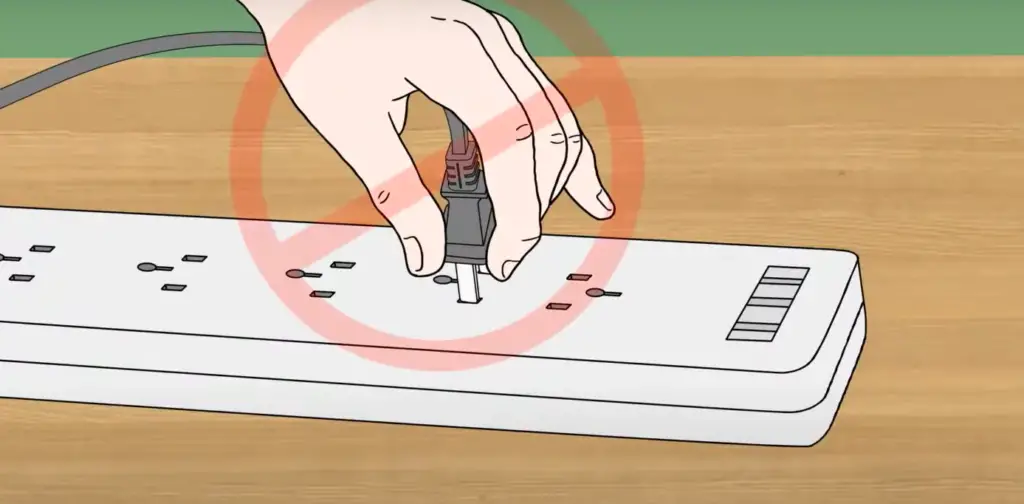
Using dedicated outlets for appliances will reduce the risk of overloading an outlet, and it will also reduce the risk of electrical current leaking from one appliance to another.
This is also important because if there is a problem with one appliance, it will not affect the other appliances that are plugged into different outlets. Which will help to reduce the risk of electric shock, as well as the risk of fire.
Install electrical outlet covers
If you have small children in your home, you should install electrical outlet covers.
Electrical outlet covers are easy to install, and they are relatively inexpensive. However, they can make a big difference in preventing electric shock, so they are well worth the investment. They can also be useful for protecting your outlets from dust and other debris.[1]
Ensuring Kitchen Safety: Preventing Electric Shocks
The kitchen is a place where electrical appliances and water coexist, making electrical safety paramount. To prevent electric shocks in the kitchen, it’s crucial to implement safety measures and follow best practices. Below, we provide an extensive guide with multiple columns on how to ensure electrical safety in the kitchen, covering various aspects, safety tips, and preventative actions.
| Aspect | Safety Tips | Preventative Actions |
|---|---|---|
| Appliance Safety | Regularly inspect cords and plugs for damage. Replace damaged appliances promptly. | Unplug appliances when not in use, and store them away from water sources. |
| Outlet Safety | Install ground fault circuit interrupter (GFCI) outlets near sinks and wet areas to prevent shocks. | Have a licensed electrician install GFCI outlets if not already present. |
| Wiring Inspection | Check for frayed or exposed wires on kitchen appliances and extension cords. | Replace damaged cords, and avoid running cords under rugs or across walkways. |
| Water and Electricity | Avoid using electrical appliances with wet hands or near water sources. | Keep water and liquids away from outlets and appliances. |
| Childproofing | Install outlet covers to prevent children from inserting objects into outlets. | Secure cords and keep them out of children’s reach. |
| Proper Grounding | Ensure that appliances requiring grounding have three-prong plugs and are properly grounded. | Consult an electrician if outlets lack proper grounding. |
| Electrical Fires | Have a fire extinguisher rated for electrical fires in the kitchen. | Know how to use the fire extinguisher safely. |
| Emergency Response | Know the location of the circuit breaker or fuse box and how to turn off power in an emergency. | Keep a flashlight accessible in case of power outages. |
| Regular Maintenance | Schedule regular electrical inspections to identify and address potential hazards. | Address electrical issues promptly, such as flickering lights or outlets that don’t work. |
| Professional Installation | Hire a licensed electrician for kitchen renovations or installations to ensure compliance with safety codes. | Avoid DIY electrical work if you lack expertise. |
Explanation of the Table:
- Aspect: Lists different aspects related to preventing electric shocks in the kitchen.
- Safety Tips: Provides safety tips and recommendations for each aspect.
- Preventative Actions: Suggests proactive actions to prevent electric shocks in the kitchen.
By paying attention to these various aspects, following safety tips, and taking preventative actions, you can significantly reduce the risk of electric shocks in your kitchen and ensure a safe cooking environment for you and your family.
FAQ
Why does my kitchen sink shock me?
The most likely reason is that your kitchen sink is connected to a metal pipe that conducts electricity. If the pipes are not properly grounded, they can become electrified.
Static electricity could also be to blame. If you touch a metal object and then touch something else that is not properly grounded, you can create an electrical circuit that can shock you.
Do kitchen taps need to be earthed?
Most kitchen taps in the US are not earthed. This means that if there is a fault with the electrical wiring in your home, you could receive an electric shock if you touch the tap. If you are unsure whether your tap is earthed, you should contact a qualified electrician to check it for you.
It is important to note that even if your tap is earthed, this does not mean that you will never receive an electric shock from it. If there is a severe problem with the electrical wiring in your home, an earth leakage circuit breaker (ELCB) may not be able to protect you from receiving an electric shock.
Why does my stove shock me?
If you have an older stove, it may not have proper insulation between the live wires and the metal casing. This can cause electrical current to leak out and come into contact with you when you touch the stove. Another possibility is that your stove’s wiring has become frayed or damaged over time, which can also lead to an electric shock.
If you’re ever in doubt about whether your stove is safe, it’s always best to consult a qualified electrician. They’ll be able to give you expert advice on what needs to be done to make sure your kitchen is safe from electrical hazards.
What safety measures should I take when using electrical appliances in the kitchen?
When using electrical appliances in the kitchen, make sure your hands are dry, and the appliances are in good working condition. Avoid using damaged cords or appliances, and always unplug them when not in use to prevent electric shock.
How can I childproof my kitchen to prevent electrical hazards?
To childproof your kitchen against electrical hazards, use outlet covers or safety caps to block unused outlets. Keep cords out of reach, and store small appliances and their cords in cabinets with childproof locks. Educate children about the dangers of playing with electrical items.
What should I do if an electrical outlet in my kitchen is sparking or feels warm to the touch?
If you notice sparking or warmth around an electrical outlet in your kitchen, immediately stop using it and turn off the circuit breaker or fuse that controls it. Contact a licensed electrician to inspect and repair the outlet to prevent electrical shocks or fires.
How can I prevent water from coming into contact with electrical outlets and appliances in the kitchen?
To prevent water-related electrical hazards, install ground-fault circuit interrupters (GFCIs) in areas where water is present, such as near sinks and countertops. Keep appliances away from sinks and ensure your kitchen has proper ventilation to reduce moisture buildup.
What safety precautions should I take when cleaning or washing appliances in the kitchen?
When cleaning or washing appliances, ensure they are unplugged or turned off. Use dry hands and avoid spraying cleaning solutions directly onto electrical components. Wipe down appliances with a damp cloth, and allow them to dry completely before plugging them back in.
Are there any specific guidelines for using extension cords in the kitchen safely?
If you need to use extension cords in the kitchen, choose ones with adequate capacity for the appliances you plan to connect. Avoid overloading extension cords, and never run them under rugs or carpets. Regularly inspect cords for damage and replace any frayed or exposed wires.
How can I safely store kitchen appliances to prevent electrical accidents?
Store kitchen appliances in a dry area away from water sources like sinks and faucets. Ensure cords are neatly coiled and not tangled, and avoid storing heavy items on top of appliance cords, which can damage them.
What should I do if I experience an electric shock in the kitchen?
If you experience an electric shock in the kitchen, seek immediate medical attention if the shock is severe. If the shock is minor, unplug the appliance causing it, and turn off the electrical circuit if possible. Do not touch the person experiencing the shock if they are still in contact with the electrical source.
How can I make sure my kitchen’s electrical wiring is safe and up to code?
To ensure your kitchen’s electrical wiring is safe and up to code, schedule regular inspections by a qualified electrician. They can identify and address any potential hazards, update outdated wiring, and ensure your kitchen complies with electrical safety standards.
Useful Video: How to Prevent Electrical Shock
Conclusion
Kitchen safety is important, especially when it comes to preventing electrical shock. Make sure you are aware of the hazards in your kitchen and take steps to reduce the risk of electric shock. Keep your kitchen clean and well-organized, avoid overloading outlets, and be careful around water. Don’t forget to perform regular inspections of your appliances, wiring, and outlets to ensure they are in good working condition. If you have any doubts, always consult a qualified electrician. With a little caution, you can keep yourself safe while cooking in the kitchen. Thanks for reading!
References:
- https://greenlivingguy.com/2021/07/prevent-electrical-shocks-in-the-kitchen-with-these-tips/
- https://www.ehow.com/info_12174907_would-shocked-faucet.html
- https://societyinsurance.com/blog/ten-ways-to-reduce-electrical-shocks-in-your-restaurants-kitchen/
- https://www.wirece.com/kitchen-electrical-safety/





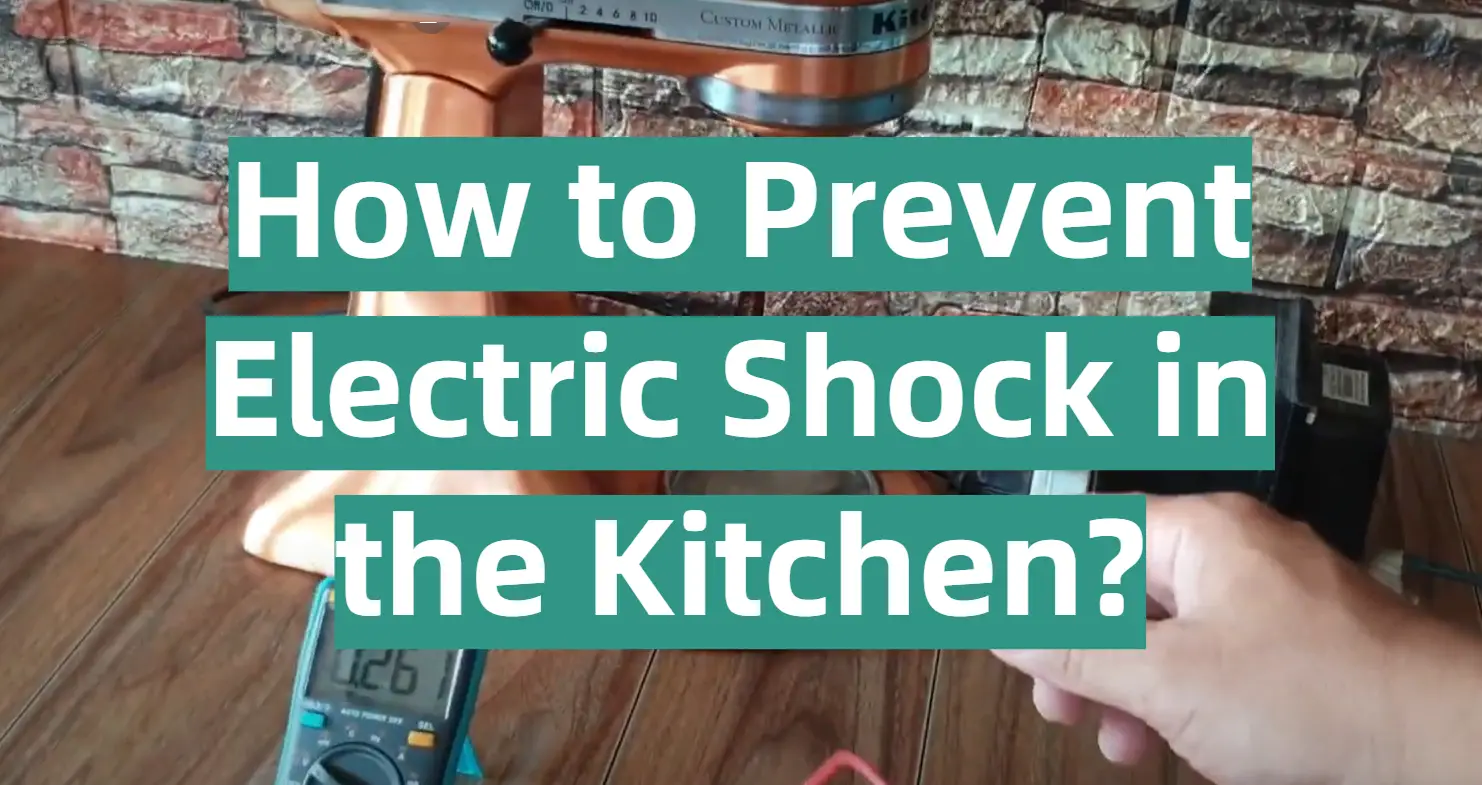







Leave a Reply